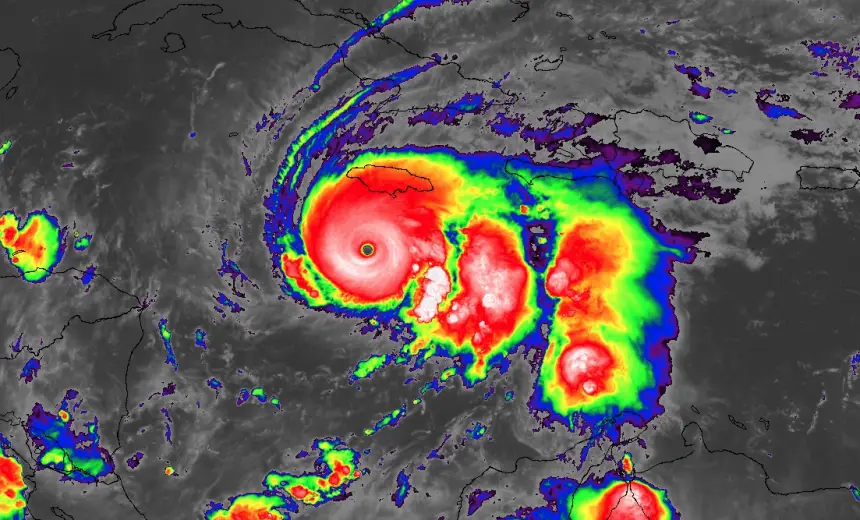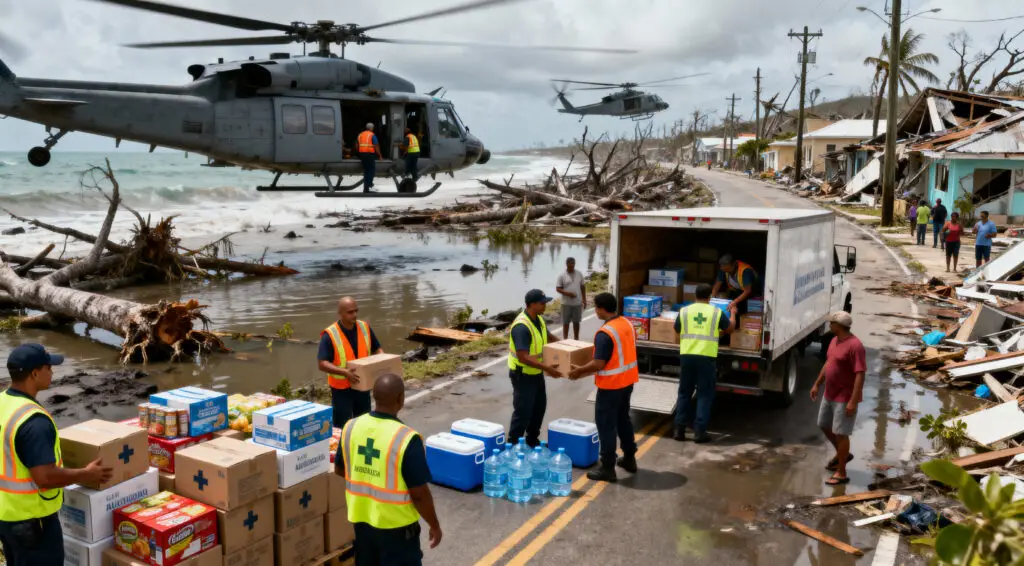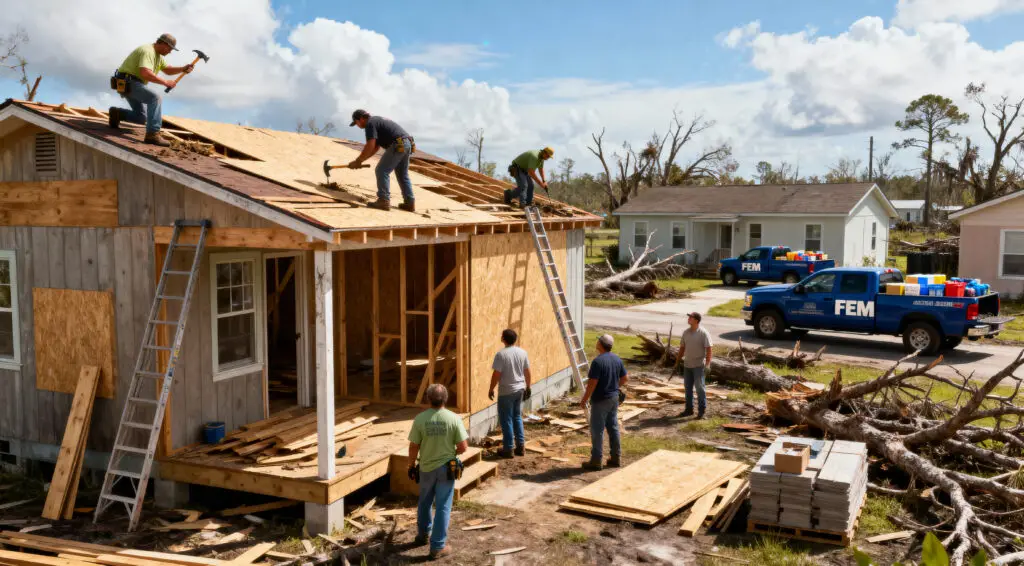Rescue Teams Mobilize After Hurricane Melissa Wrecks Jamaica
After Hurricane Melissa hit Jamaica hard, emergency workers and volunteers are working quickly to get help to people. Four days after the storm, towns are still stuck in the middle of severe wreckage, water, and power outages.
Relief convoys are bringing food, clean water, and medical supplies to places that were affected the worst by the Category Five hurricane. Aid workers said the major goal is still to get to remote areas that are blocked off by fallen trees and damaged roads.

Source: CNN
Communities in Elizabeth and Westmoreland Receive Urgent Assistance
The parishes of Elizabeth and Westmoreland are among the worst hit, with whole communities shut off for days. Debris, concrete posts, and uprooted trees are still blocking roads, making it harder for rescuers to get to people and slowing down important relief.
People who don’t have clean water have been getting it from rivers and eating things like coconuts and breadfruit. Officials said the situation was terrible and stressed how important it was to restore access to basic goods and secure housing.
Government Convoys Deliver Food and Essential Relief Items
Social Security Minister Pearnel Charles Jr. went along with emergency convoys that brought blankets, tarps, and ready-to-eat food. Teams are also giving out medicine, hygiene kits, and clean water to those that really need them.
Officials claimed that the airport in Montego Bay is now operational again to speed up medical evacuations and humanitarian goods. The administration is still working with other countries to improve emergency logistics and fix damaged infrastructure.
Recommended Article: Jamaica Airports Shut Down as Hurricane Melissa Hits Hard
Hurricane Melissa Leaves Trail Of Widespread Destruction
On Tuesday, Melissa hit Jamaica’s southwest coast with gusts that stayed at 185 miles per hour, making it one of the strongest hurricanes in Atlantic history. The cyclone tore down houses, knocked off power lines, and leveled agriculture that was important for the island’s food supply.
Officials said that at least nineteen people died in Jamaica and thirty-one in Haiti, which is next door. Thousands of people are still living in temporary housing as recovery workers figure out how to fix the damage and make sure that electricity, water, and phone service are restored first.
United States Deploys Disaster Team to Support Local Operations
Earlier this week, the U.S. Embassy in Kingston said that a regional disaster response team had arrived. Secretary of State Marco Rubio started the mission, which is meant to help with search-and-rescue efforts and organize the delivery of aid.
The embassy stated in a statement, “The United States stands with Jamaica,” and promised to keep helping. U.S. Navy and Air Force forces are helping with logistics to make sure that emergency supplies get to outlying coastal and inland areas quickly.
Leaders Focus On Restoring Power And Essential Services Nationwide
Andrew Holness, the Prime Minister, stressed that getting the power and phone lines back up is Jamaica’s first priority. He also said that hospitals, especially in Falmouth, need to be stabilized right away to stop other problems from happening.
Holness said that Jamaica will rebuild stronger and smarter, which would make the infrastructure more resilient. He praised people and foreign partners for their help, stressing the need to work together to recover and prepare for climate change in the long run.
Record Insurance Payout Supports Jamaica’s Recovery Funding
The Caribbean Catastrophe Risk Insurance Facility said it will pay Jamaica a record amount of seventy-eight million dollars. The money will assist in paying for initiatives that help people recover and rebuild in the areas that were hit.
Fayval Williams, the Minister of Finance, stated that the payment is part of a bigger plan for managing disasters in the country. She mentioned extra reserves, contingency funds, and disaster bonds that are meant to make Jamaica’s economy more stable in the face of future hurricanes.
Rebuilding Efforts Aim To Restore Stability And Community Safety
Local governments are checking for damage to buildings and making plans to fix schools, hospitals, and transportation systems. Engineers and volunteers are cleaning up the mess and restoring houses that were destroyed by water and strong winds.
Officials added that even though people are going through a lot of trouble, they are still in good spirits since they are all working together to reconstruct their lives. Recovery efforts are still going on, and there is hope that Jamaica will come out of this terrible natural tragedy stronger.























